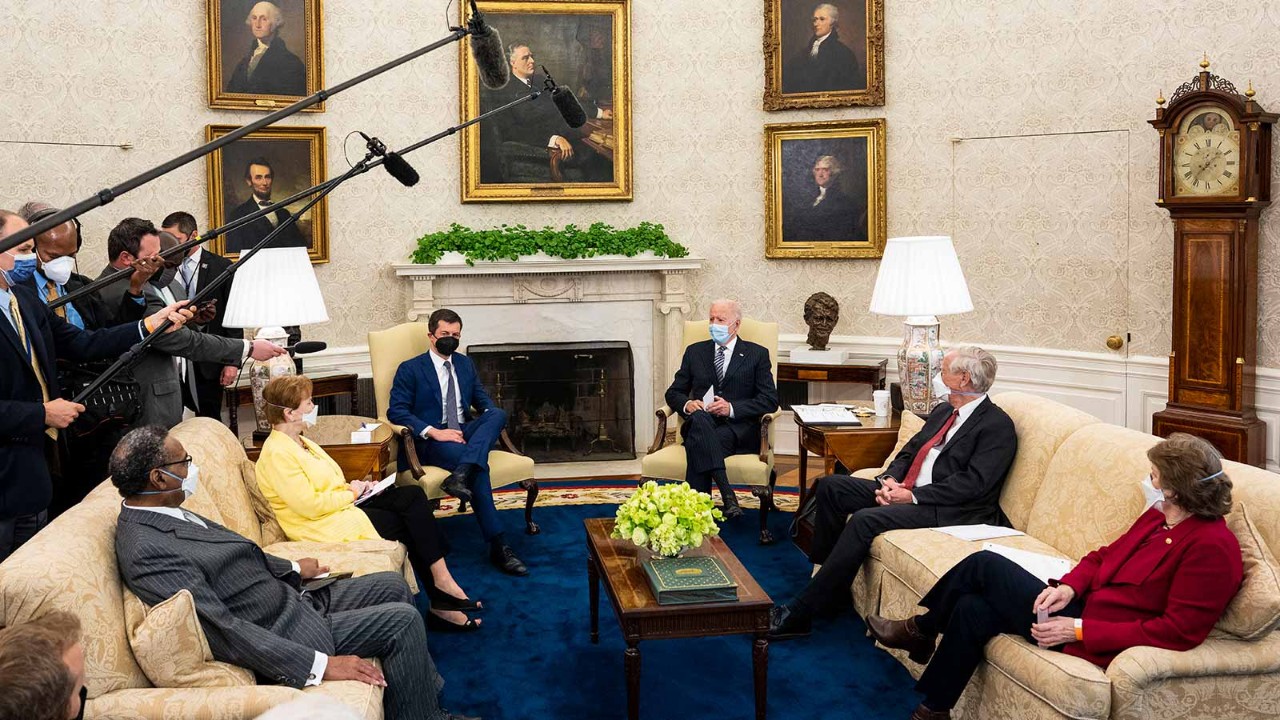
In April, the US president Joe Biden proposed headline-grabbing tax increases to increase the main US corporate tax rate from 21% to 28% and the tax levied on the global income of US companies from 10.5% to 21%.
Tax justice networks across the world have praised the proposals as game-changing in the Organisation for Economic Co-operation and Development’s long fight against taxbase erosion and profit-shifting. But for low-tax countries such as Luxembourg, the Netherlands, Malta and of course Ireland, which have benefited greatly from hosting US multinationals at low corporate tax rates, the specifics of the proposals are of critical importance.
Fairness or ‘whereness’?
The current Irish corporate tax rate is 12.5%. Put simply, should Biden’s proposals succeed in raising taxes on global income, then US multinationals in Ireland might find themselves paying ‘top-up taxes’ back in America, virtually eradicating the benefit of their Irish operations and raising questions about their continued presence. As it is, the Department of Finance’s 2021 stability programme update suggests that Ireland’s corporation tax receipts will be roughly €2bn lower by 2025 as a result of proposed changes to international taxation rules.
‘Ten companies account for 50% of Ireland’s corporate tax take, so we are susceptible to one or two of those companies going back to the US’
Speaking at a virtual seminar on international taxation hosted by the Department of Finance in April, the minister for finance, Paschal Donohoe, stated: ‘I firmly believe that the long established Irish corporate tax rate of 12.5% is a fair rate and within the ambit of healthy tax competition.’ Small countries, he added, ‘need to be able to use tax policy as a legitimate lever to compensate for advantages of scale, location, resources, industrial heritage and the real, material and persistent advantage enjoyed by larger countries.’
However critics of Ireland’s low corporate tax rate argue that tax competition is anti-democratic, since it fires the gun on a race to the bottom and prevents much poorer sovereign states from setting their own tax rates. John Christensen of the Tax Justice Network describes tax competition as ‘totally opposed to capitalism’ in its true sense of real competition between companies, and criticises it as ‘cannibalising the tax regimes of other countries’.
Building the economy
But multinationals have brought jobs to Ireland – thousands of them directly, and thousands more indirectly – and these jobs have helped to increase activity in a previously weak Irish economy. ‘We’ve had a very successful model over the last 30–40 years,’ PwC Ireland’s managing partner Feargal O’Rourke told the Irish Times ‘Inside Politics’ podcast. ‘It’s operations of substance, not brass plates.’
O’Rourke argues that Biden’s planned international profits tax stems from a new era of big government. ‘It’s not about equity or fairness, it’s about governments requiring more money,’ he says.
On that point, Christensen agrees. ‘This is absolutely a matter of American politics,’ he says, but adds that generally: ‘Tax competition has worsened inequality to the stage that social stability across the world is being undermined because states cannot provide for their citizens.’ Biden’s proposals bring revenue back under US government control and redress the balance of the tax take, providing the financial means for meeting the goals set out in his massive stimulus plans.
What these plans won’t do currently, Christensen argues, is help poorer economies in the global south tax at source. O’Rourke agrees: ‘It’s not an issue of fair share, but an issue of where tax is paid… These taxes will be paid in the US, not in the global south.’
Overdependence
But this international cooperation in the name of increasing stability in the US might directly cause instability in Ireland. O’Rourke argues that Ireland has become a victim of its own success. ‘Ten companies account for 50% of the corporate tax take, so we are susceptible to one or two of those companies going back to the US,’ he says. ‘Our very success in bringing activities of huge scale and scope here… and taxing those activities… [creates] a massive risk that we have become overdependent on a small number of multinationals.’
According to Revenue figures published in May 2021, the largest 10 corporation tax contributors (including groups such as Apple, Pfizer and Intel) paid a combined €5.98bn in corporate income tax last year, up from €4.39bn in 2019, and the equivalent of 1.5% of GDP.
O’Rourke adds that without these multinationals, Ireland would have seen a far worse financial crisis and suffered far worse economic effects from the pandemic.
The International Monetary Fund (IMF) has cautioned that the introduction of a minimum global corporate tax rate could, in an ‘extreme scenario’, wipe out half of Ireland’s €11.8bn corporate tax base. However, when discussing the findings of the recent 2021 official IMF visit to Ireland, Khaled Sakr, head of the IMF mission to Ireland, said: ‘This is a tail-risk scenario and we do not anticipate that it will happen.’
The IMF’s assessment points out that the strong growth of multinational activity in Ireland during the pandemic softened the blow to the economy and public finances, making Ireland the only EU country with positive GDP growth in 2020. It concludes that, given potential changes in international taxation, ‘Ireland should therefore continue to build on its strong comparative advantages, such as its qualified labour force, strong and stable legal and policy environment, and favourable business climate.’ It also recommends action to support a transition to a greener and more digital recovery effort, with more investment in social and physical infrastructure and moves to address the shortage of affordable housing.
Nothing settled yet
Biden faces a tough battle to turn his proposals into reality. According to a procedural analysis by law firm Holland & Knight, a normal legislative process is unlikely, and a budget reconciliation process the more likely path. This would, however, require a reopening of the budget approved by both houses of Congress, with much debate and many likely amendments.
Most importantly, nothing has been agreed yet, and the global corporate income figure of 21% is seen by some as highballing, with an eventual likely rate settling somewhere in the teens. While the Americans tussle with legislative process, it may be a good idea for Irish politicians to move quickly on initiatives that O’Rourke suggests may soften the blow. Ultimately, he says: ‘It all comes back to how we can help the indigenous sector more.’



